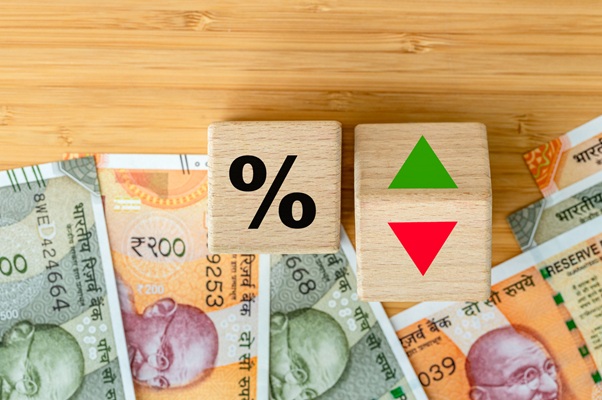.png)
The Morning Edge: Emerging Markets Face "Perfect Storm" Amid Trade Wars
A newsletter designed to prepare you for the day, offering a concise summary of overnight developments and key events ahead that could influence your workday.

April 28, 2025 at 1:42 AM IST
QUICK SNAPSHOT
Global Sentiment: Risk-on
Factors: Trade war de-escalation
TODAY’S WATCHLIST
- India March IIP data
- UltraTech Cement earnings
THE BIG STORY
The World Bank's Chief Economist Indermit Gill warned Friday that President Trump's sweeping tariffs have created a dangerous convergence of challenges for developing economies as slashing growth forecasts, spooking investors, and exacerbating pre-existing debt and stagnation problems. In an exclusive Reuters interview, Gill revealed that while official World Bank projections won't be released until June, a consensus of economists already shows substantial downgrades, with global trade growth now expected to plummet to just 1.5%—a fraction of the 8% rates seen in the early 2000s. The crisis is uniquely policy-driven, Gill noted, meaning solutions exist if governments choose to act, but the immediate impacts are severe: emerging market growth continues its two-decade slide from 6% peaks, while foreign direct investment has collapsed from 5% to just 1% of GDP across developing nations.
Amid the gloom, Gill offered one clear prescription, developing countries could counter the global protectionist wave by unilaterally lowering their own tariffs, potentially stimulating commerce even as advanced economies retreat behind trade barriers. The recommendation comes as uncertainty indices, already elevated post-pandemic, spike further following Trump's April 2 tariff announcements.
DATA
US consumer confidence declined for the fourth consecutive month in April, with the University of Michigan's Sentiment Index falling to 52.2 – down sharply from 57.0 in March – as concerns over tariffs and economic uncertainty weighed on households. While the figure slightly surpassed economists' stagnant 50.8 forecast, the persistent downward trend signals weakening optimism. Across the Atlantic, UK economic pessimism reached a historic low, with Ipsos MORI reporting 75% of Britons expect conditions to deteriorate over the next year – an 8-point increase since March and the gloomiest outlook since records began in 1978. A mere 7% anticipate improvement, highlighting the profound impact of inflation and stagnant growth on public sentiment.
WHAT HAPPENED OVERNIGHT
US stocks closed higher on Friday, securing weekly gains as tech stocks led the charge amid optimism about easing US-China trade tensions, though mixed earnings created divergence. The S&P 500 and Nasdaq were lifted by the "Magnificent Seven" mega caps, with Alphabet rising 1.7% on strong cloud revenue, while Intel fell 6.7% after a gloomy forecast. Charter Communications surged 11.4% on subscriber growth, offsetting a 1.2% drop in oilfield services stocks warning of tariff-driven headwinds. The Dow trailed as sector performances remained uneven.
Benchmark 10-year US Treasury yields fell 3.7 basis points to 4.268% on Friday, extending declines as hopes for easing US-China trade tensions and potential Fed rate cuts outweighed lingering concerns about foreign demand.
The US dollar edged 0.07% higher on Friday, poised for its first weekly gain since mid-March after China's partial tariff exemptions on US imports fuelled hopes of de-escalation in the trade war.
Brent crude oil prices inched higher on Friday but still closed the week in the red, weighed down by lingering concerns over rising supply and fragile demand.
Day’s Ledger
Economic Data
- India March IIP data
Corporate Actions
- Jan-Mar Earnings: Adani Green Energy, AWL Agri Business, Castrol India, Consolidated Construction Consortium, CSB Bank, Dolphin Offshore Enterprises (India), Firstsource Solutions, Go Digit General Insurance, Hexaware Technologies, Kfin Technologies, KPIT Technologies, Nitco, Sanghi Industries, TVS Holdings, TVS Motor Company, Adani Total Gas, Aditya Birla Sun Life AMC, Greenply Industries, IDBI Bank, Indegene, KPIT Technologies, Nippon Life India Asset Management, Oberoi Realty, Plastiblends India, RPG Life Sciences, Shree Digvijay Cement, UltraTech Cement, Vimta Labs, Central Bank of India, UCO Bank, PNB Housing Finance, IIFL Capital Services, Hatsun Agro Product, Indian Railway Finance Corporation, and SecMark Consultancy,
- Heads UP Ventures to consider fund raising
- Vimta Labs to consider dividend
- BEML to consider dividend
Policy Events
- ECB's De Guindos speaks
TICKERS
- AXIS BANK informed that Rajiv Anand to retire as Deputy MD on August 3, 2025, after completing third term as Director
- BIOCON subsidiary Biocon Biologics receives positive opinions from EMA for denosumab biosimilar in bone health
- GAIL INDIA signs MoU with CONCOR to explore LNG adoption in logistics sector
- INDIA CEMENTS March quarter net loss widens to ₹7.57 billion from ₹2.93 billion loss year ago
- JSW Steel Coated Products submits resolution plan in Colour Roof India insolvency, declared successful applicant
- NRB BEARINGS to invest ₹20.00 billion over two years for manufacturing and R&D expansion
- RAILTEL CORPORATION OF INDIA receives work order worth ₹9.01 billion from Institute of Road Transport
- RBL BANK March quarter net profit drops 80.5% on year to ₹6.87 billion as provisions & contingencies rise 89.7% to ₹7.85 billion..
- RELIANCE INDUSTRIES March quarter consolidated net Profit grows 6.4% to ₹226.11 billion; Revenue rises 8.8% to ₹2,881.38 billion
- ZYDUS LIFESCIENCES informed that USFDA inspection of Dabhasa unit concludes with six observations, none related to data integrity
MUST READ
- Tesla strengthens India presence with new office near Mumbai’s BKC
- Companies mull stockpiling as trade war turns tricky
- India offers strong growth and stability to investors seeking long-term value: RBI Governor
- Drugmakers Glenmark Pharma, Cipla plan to step up US manufacturing
- India likely to seek parity with US on tech access in bilateral trade talks
- Silver may shine brighter than gold
- Mahindra to acquire 58.96% stake in SML Isuzu for ₹5.55 billion
- India to not allow wheat export even if govt procurement exceeds target
- Chinese Firms Turn to Indian Exporters to Help Fill US Orders



